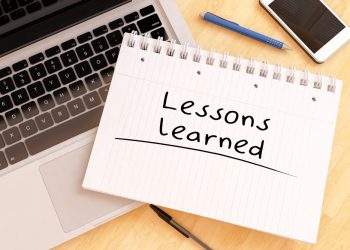NTSB report on Seastreak Wall Street accident in which captain lost control while docking
 The National Transportation Safety Board (NTSB) has determined that the ferrySeastreak Wall Street struck Pier 11 in Lower Manhattan in January 2013, because the captain lost control of the vessel while attempting to dock. Additionally, the procedure used by the captain to reduce speed and transfer control from one bridge station to another while approaching the pier did not allow enough time to adequately respond to the loss of propulsion control.
The National Transportation Safety Board (NTSB) has determined that the ferrySeastreak Wall Street struck Pier 11 in Lower Manhattan in January 2013, because the captain lost control of the vessel while attempting to dock. Additionally, the procedure used by the captain to reduce speed and transfer control from one bridge station to another while approaching the pier did not allow enough time to adequately respond to the loss of propulsion control.
On January 9, 2013, Seastreak Wall Street, a high-speed passenger ferry serving commuters between New Jersey and Lower Manhattan, allided with Pier 11 as the vessel was attempting to dock. Four of the 331 persons aboard the vessel were treated for serious injuries.
NTSB investigators identified the followingsafety issues pertinent to this accident:
- The captain’s control of the vessel as it approached the pier;
- Procedures, guidance, crew training, and managerial oversight provided by Seastreak LLC, the managing owner and operator of the Seastreak Wall Streetand similar ferries;
- Control of passenger access to stairways;
- Control panel design;
- Development and implementation of an effective safety management system(SMS); and
- The value of information captured by a voyage data recorder (VDR) in accidentinvestigations.
“While theSeastreak Wall Street is the third ferry accident the NTSB has investigated in New York City in the last decade, we found areas of risk identified in previous investigations, said NTSB Chairman Deborah A.P. Hersman. Seastreak LLC had no safety management system (SMS) in place to identify risks and take corrective actions. Although the NTSB recommended that SMS be required in 2005 and the Coast Guard was provided the authority to require them by Congress in 2010, SMSs are still not required for domestic passenger vessels. It is time to require that every passenger vessel implement an SMS.”
| A safety management system would have required the company to maintain current documents, to train employees to integrate safe practices into both routine vessel operations and emergency preparations and to clearly define the roles of the crew members, ensuring the captain had assistance during the emergency. |
The captain lost control of the vessel because of confusion about the mode in which the ferry was operating. Earlier in the accident trip, the captain had taken the vessel from the normal Combinator mode to the seldom-used Backup mode; as he approached the dock, he was not aware he had not transferred the propulsion system back to Combinator mode. In Backup Mode, the propellers remained in the forward pitch position, causing the vessel to increase forward speed rather than slow down.
Contributing to the severity of injuries was the lack of procedures to limit passenger access to stairwells on theSeastreak Wall Street during potentially high-risk situations such as docking and undocking. Immediately prior to the accident, no audible alarm was sounded nor did the captain make an announcement to inform passengers of the emergency.
In 2012, theSeastreak Wall Street underwent major modifications converting the vessel’s engines from waterjet to controllable pitch propeller propulsion. Although vessel owners and operators are responsible for updating documents to reflect changes in equipment, theSeastreak’s operating manual had not been updated. Additionally, following the changes, the company did not institute a formal training program on operation of the new system. However, the captain was trained by personnel from the manufacturer of the new system, and in turn trained otherSeastreak captains on the new system.
The NTSB’s investigation of this accident was also hampered by the absence of a voyage data recorder, which would have captured critical information to assist in the investigation.
|
As a result of this accident, the NTSB makes recommendations to:
|
|
Conclusions of the accident 1. Mechanical failure, distraction due to cell phone use, fatigue, use of alcohol or illicitdrugs, the captain’s health, and weather were not factors in this accident. 2. The emergency response by the Fire Department of the City of New York was timely andappropriate. 3. The captain did not return the propulsion control system to Combinator mode afterswitching to Backup mode earlier in the voyage. 4. The captain successfully transferred rpm control to the starboard station, and heattempted to slow the vessel by moving the order levers astern; however, this inputresulted in forward acceleration because the system was in Backup mode. 5. The point in the voyage at which the captain initiated transfer of the SeastreakWall Street’s propulsion control did not allow sufficient time and distance to react to theloss of vessel control. 6. The propulsion control system on the Seastreak Wall Street used poorly designed visualand audible cues to communicate critical information about mode and control transferstatus. 7. Seastreak LLC bridge control transfer procedures at the time of the accident wereinadequate as they did not reflect the new propulsion system nor did they definecrewmember roles, which contributed to the loss of vessel control. 8. The number and severity of injuries resulting from this accident could have beenmitigated by alerting passengers and controlling their access to stairwells during dockingand undocking. 9. Seastreak LLC provided ineffective oversight of the operation of theSeastreak Wall Street, including maintaining procedures that did not apply to the newpropulsion configuration, providing inadequate crew training, and poorly identifying andmitigating risks. 10. Information that could have been captured by a voyage data recorder would haveenhanced the National Transportation Safety Board’s analysis of the loss of vessel controlthat caused the allision |
Further details may be found by reading the NTSB report here




























































